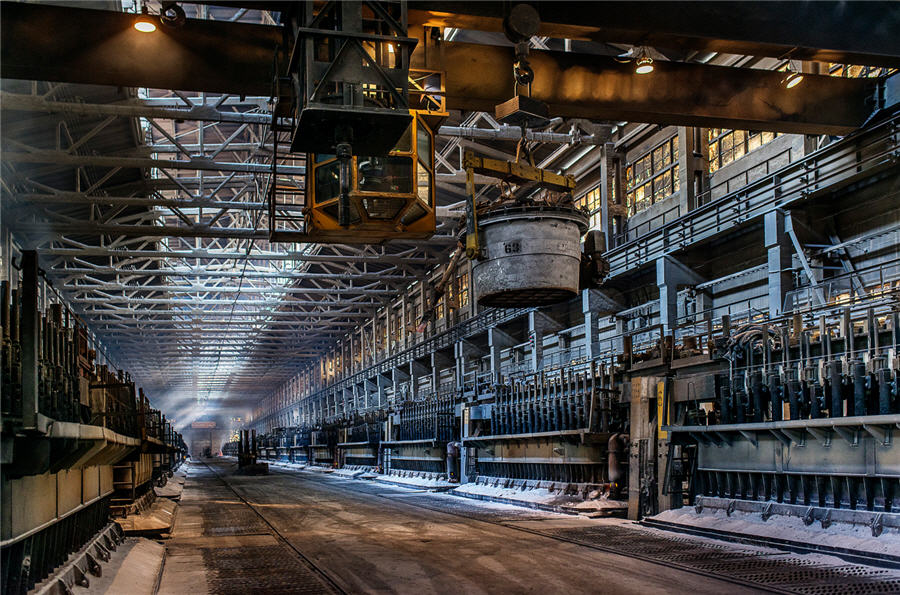Russia’s Rusal faces tough market for aluminium even after sanctions dropped

Russian aluminium group Rusal has faced tough negotiations with clients over 2020 supply contracts as trade wars and an economic slowdown have created a “buyer’s market” for the metal, its sales director said.
Rusal entered the aluminium “mating season” – when customers and producers get together to strike deals – hoping to win back clients lost a year ago, when U.S. sanctions hit the company’s bottom line and roiled world aluminium markets.
Producers have been under pressure to cut prices in their 2020 contracts due to weak market conditions
Washington lifted the sanctions on Rusal in late January after intense negotiations and a series of organisational changes, though restrictions on its founder Oleg Deripaska remain.
Sanction risks are no longer an issue in discussions with clients, Rusal’s Sales and Marketing Director Roman Andryushin said, but trade wars and a slowdown in global economic growth have created a “depressive” market.
Aluminium prices have fallen by around 10% from their 2019 peak in March.
“Overall the market is not straightforward right now,” Andryushin said. “Global consumption fell this year for the first time in the past 12-13 years. It’s a buyer’s market right now.”
Most aluminium sellers have run into difficulties during the current negotiating season as a result, Andryushin said.
Talks with clients are continuing later into the year than usual. Though almost complete in the United States, they will not wrap up in Europe until the end of November, Andryushin said.
Producers have been under pressure to cut prices in their 2020 contracts due to weak market conditions, sources in the sector told Reuters in October.
Rusal, the world’s largest aluminium producer outside China, expects to win back the majority of its clients, however.
“No one is discussing sanctions right now. I am once again seeing my belief confirmed that the market is absolutely objective, and moreover it has a very short memory span,” Andryushin said.
“Rusal is currently positioning itself as a player in the premium segment,” he said, adding the company expects value-added (VAP) product sales – such as alloyed ingots and slabs – to make up 45-50% of its total sales next year.
VAP sales to the United States, which fell last year as sanctions deterred clients, have recovered and are expected to reach 250,000-300,000 tonnes next year, Andryushin added.
The company has also made its first product deliveries to the U.S. west coast and entered the Canadian market.
The sales director said he expected mining giant Glencore to remain one of Rusal’s clients, after a long-term contract between the two companies expired last year.
However, he said he was not yet ready to comment on the likely extent of their future relationship as negotiations were not complete.
Rusal expects global demand and prices to start recovering from current levels in the second quarter or in the second half of 2020.
(By Polina Ivanova and Polina Devitt; Editing by Jan Harvey and Mark Potter)
{{ commodity.name }}
{{ post.title }}
{{ post.date }}




Comments